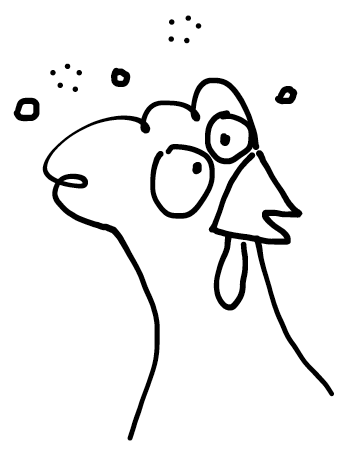I've just bought 'Poems that make grown men cry'. I thought the title was a bit cheesy, to tell you the truth, but when I dipped into into the book, courtesy of Amazon's 'Look inside' I was hooked. The selection is a knock out, all the poems I've read so far were stunning. If the book gets more people keen on poetry, which I think it will, then I'll forgive the title!
Personal Blogs
Black and white cat
Come and sniff
I'm a friend, don't be scared.
So I took Will down the Swan and he got in an argument and was barred.
I wondered why my newspaper felt so cold.Then I realised it had poor circulation.
Time, you bastard!
How can we be friends.
When you're just
Trying to do us all in?
eadership
noun
- no-one actually at the front.
Someone left me some drawing pins in their will. Turned out they were inheritance tacks.
I came up with this tonight, and it seems pretty tough to read aloud. Give it a try and write back!
What Andrea is, is annoyed by anedoids ads.
As any adenoidally ad annoyed Andrea is annoyed by anedoids ads.
A certain young gourmet named Grice
Reckoned crispy roast wombat was nice.
He said' "There's a dearth,
For they live in the earth.
But I'll dig you one up in a trice."
At that moment
A bright cold halo
Appeared round the moon
An owl hooted.
Steady gaze.
Mount Fuji.
Issa
Our eyes let us see further than a dragonfly can, but from the time of Galileo we have explored how we can extend our reach, not just to gaze at the mountains, but to penetrate the heavens. And for that we use telescopes.
The first optical telescopes were very small, at least by modern standards. For example, one of Newton's seems to have a diameter of about 50 mm.
But subsequently the diameter of telescopes has doubled and redoubled many times, as various construction problems have been overcome.
The first telescopes used lenses, but starting with Newton's, reflecting telescopes have dominated, because it's much less difficult to manufacture big mirrors than it is big lenses.
Why does size matter? Because a bigger diameter means, in simple terms, a bigger magnification.
So there are three really big telescopes planned to come into operation 2020s (hopefully). The biggest telescope at present is the Keck, which is 10 m across, so collects 40,000 times as much light as Newton's, if I have my sums right. The new ones proposed will be 25 m, 30 m, and the largest of all, the European Extremely Large Telescope, at 39 m.
This giant dragonfly eye won't be just one huge mirror, it will be made of 798 hexagons, each 1.44 m across a compound mirror, just as dragonfly sees through compound lenses.
And in case you wondered the EELT won't physically be in Europe, for practical reasons, but in Chile.
The EELT and the other big telescopes will let us take pictures of exoplanets. These are planets orbiting other stars from ours. Many of these have been discovered but usually their existence is only inferred, from regular periodic changes in the light we observe from the star, as the planet comes between it and us. Only in a score of cases can we even observe the planet as a separate object from its star.
When a promising new exoplanet is discovered the media often feature illustrations of what it looks like, particularly if there is any possibility that it could harbour life. But these are merely the imaginative work of artists, not real pictures captured by telescopes.
The new generation telescopes will change this. For the first time we shall be able to actually see exoplanets orbiting their stars. We shall have come a long way from Galileo's observation of Jupiter being circled by its moons.
Swiss leader William Tell was heavily criticised last night for being "Too obsessed with targets".
Herr Tell's office was unavailable for comment.
Why was the word "posesses" embarrassed to be seen in public?
Because it was under-essed.
Why was baby Moses impatient to be found? Because he was in a rush.
When Sidney got the text, he said
"Oh bother! Father's dead.
This causes me enormous sorrow.
I'd booked my holiday tomorrow."
Why did the drunken chicken cross the road?
To get to the other cider.

(With apologies to Savage Chickens)
Bagel = Lifeguard
Bakers = Baskerville's doggy doom
Bloomer = Mediterranean sea
Boulangerie = Way of scaring underwear
Chapati = No, we went straight home
Dough = See Homer
Loaf = unwilling
Naan = May be in granary
Rye = Ironic
Slice = Diagnosis of infestation
I hardly thought about my arteries. That is, until my drains got blocked.
Gouda
Is louda.
But Feta
Better.
If I were you
And you were me
Would ye be mou
And me be thee?
Walking light
And barefoot home, through
The grass.
The dew,
Embraces
me too,
As I
pass.
And what would it to be like.
To have no memory?
Alway Spring, or
Always Winter.
To: All Mortal Supplicants
Subject: Excessive workload
A recent flood of supplications is placing our staff under stress. I am sure you will understand if I ask you to send future complaints directly to my mailbox, monkey@rainbow.bridge
We vowed to never visit there again.
As Father said, "Their hygiene's flawed."
"But all the same, he was insured."
Trust me. I sell asteroid insurance. It's good so far. Very few claims.
This blog might contain posts that are only visible to logged-in users, or where only logged-in users can comment. If you have an account on the system, please log in for full access.